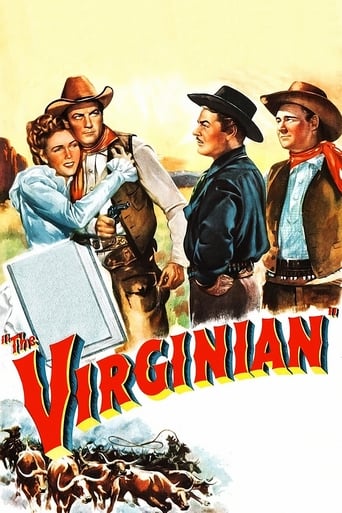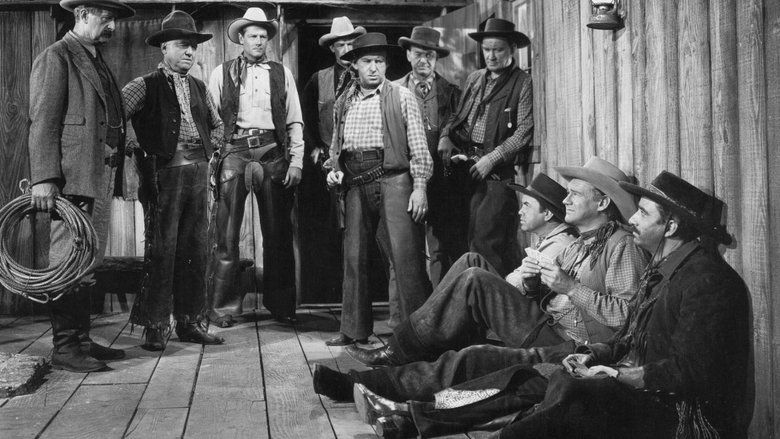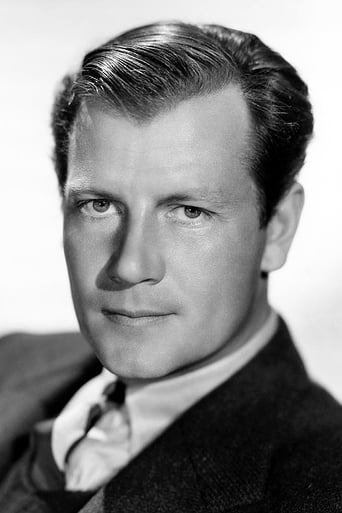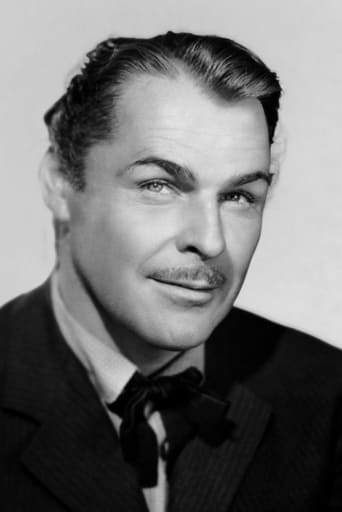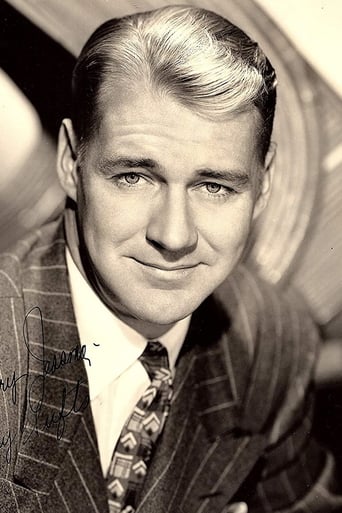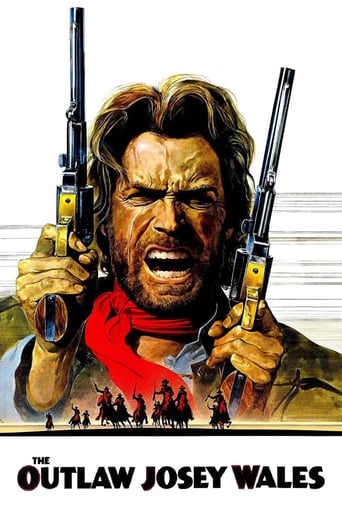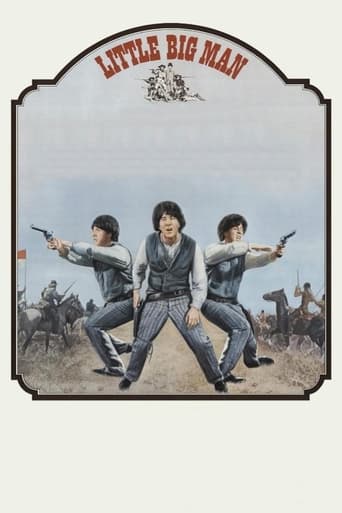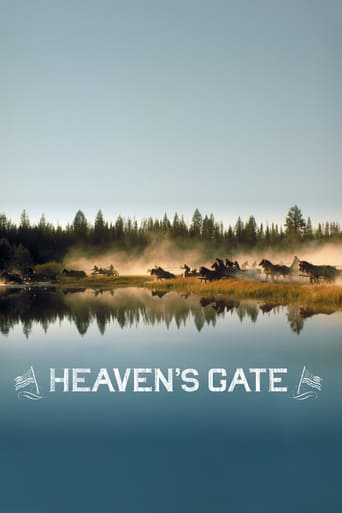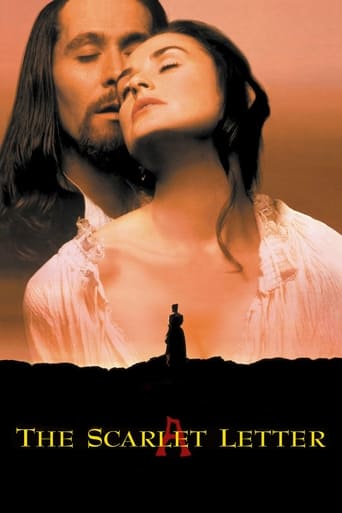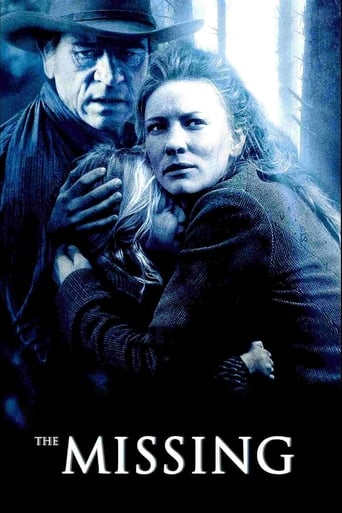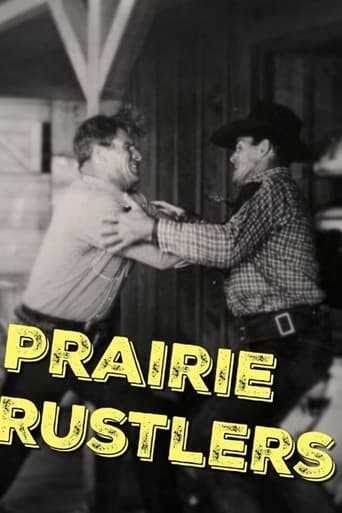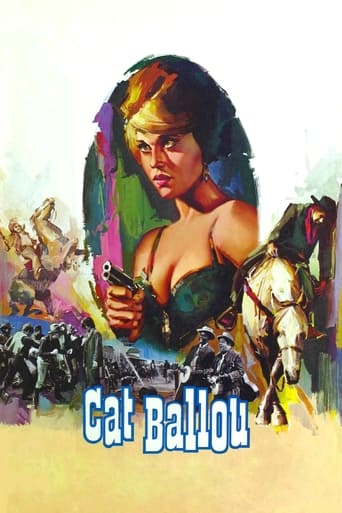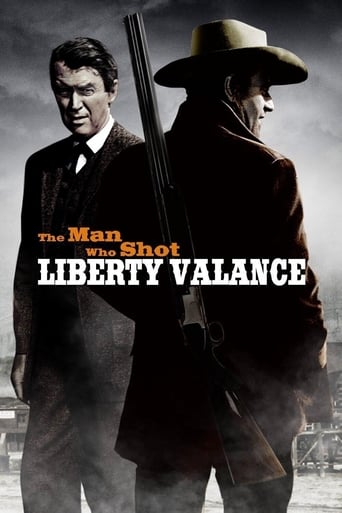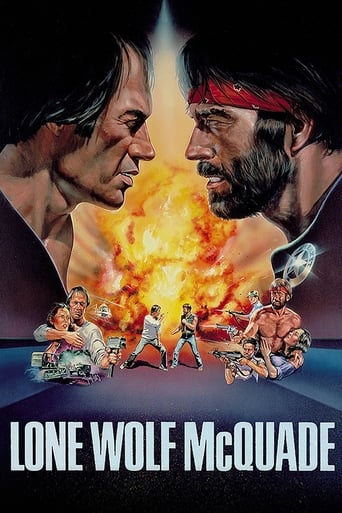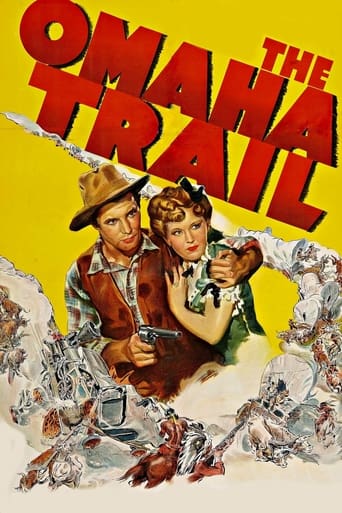The Virginian (1946)
Arriving at Medicine Bow, eastern schoolteacher Molly Woods meets two cowboys, irresponsible Steve and the "Virginian," who gets off on the wrong foot with her. To add to his troubles, the Virginian finds that his old pal Steve is mixed up with black-hatted Trampas and his rustlers...then finds himself at the head of a posse after said rustlers; and Molly hates the violent side of frontier life.
Watch Trailer
Cast


Similar titles
Reviews
Really Surprised!
Good films always raise compelling questions, whether the format is fiction or documentary fact.
It's the kind of movie you'll want to see a second time with someone who hasn't seen it yet, to remember what it was like to watch it for the first time.
The plot isn't so bad, but the pace of storytelling is too slow which makes people bored. Certain moments are so obvious and unnecessary for the main plot. I would've fast-forwarded those moments if it was an online streaming. The ending looks like implying a sequel, not sure if this movie will get one
This is not one of "the GREAT" Westerns, but it's pretty darned good...above average for that genera in that era.The biggest positive of this film is its star -- Joel McCrea as the Virginian. I always preferred McCrea in non-Westerns, but he's very good here. Brian Donlevy is here as the "bad guy" Trampas. Donlevy was an interesting actor. Often the bad guy, but not always. He's quite good here, although it's obvious that he's a B actor.Sonny Tufts is the Virginian's best friend and competitor in the love department with the new school marm. This characters demise -- hung by his best friend -- is another thing that sets this Western apart from many.Barbara Britton is "just okay" as the romantic interest here...the new school marm. Not much depth there in regard to acting.The wonderful Fay Bainter is here as the best friend of the school marm, but she is wasted in her role. The equally wonderful Henry O'Neill plays Bainter's wife...but again, his talents are wasted here. Long before "I Love Lucy", William Frawley sometimes played in Westerns, and he is along here in a small role.Incidentally, some sources indicate that Minor Watson has an uncredited role as "the Judge". I am quite sure that is incorrect. Willard Robertson played the role.Production values here are quite good, and the Technicolor photography taken in California is very nice.Very good, but not great. Better than the average Western of the era. Worth a watch...at least once.
Cowboy Joel McCrea pals around with pretty eastern-bred schoolteacher Barbara Britton and squares off against black-clad cattle rustler Brian Donlevy and McCrea's amiable pal, who threw in with the rustlers in order to make some easy cash.This version of the popular novel takes way too much time to get moving, spending a majority of the first fifty-or-so minutes on the uninteresting wooing of Britton by McCrea. The last thirty-five minutes are okay, with decent action and suspense scenes, though never quite as good or plentiful as you'd like them to be. However, the hanging scene does pack a wallop.The best thing this has going for it is the old-fashioned Technicolor and that old Hollywood sheen.
This is the second film I have viewed where Joel McCrea played the hero and Brian Donlevy played the chief villain. The first was Cecil de Mille's epic "Union Pacific", 7 years earlier. The present film was the second talkie version of the classic 1902 novel by Owen Wister, generally regarded as the first modern western novel, and a hugely popular book with both sexes for years to come. Unfortunately, I haven't read the novel nor seen the '29 pioneer talkie version, starring Gary Cooper. Unlike this former film, the present film was shot in Technicolor. I understand that, unlike this film, the book continued after the marriage with a visit to Molly's home in VT, where the culture shock that she experienced in relocating to frontier WY is reversed somewhat for The Virginian.The book appealed to women as well as men, because it pictured a middle-class townie young woman being able to eventually adapt to surviving on the western frontier, marrying a western hero, originally from the east, worthy of her love. Of course, women readers at the turn of the century were likely to be mostly from comfortable middle class families, rather than being poor immigrant women, often used to farm work, who presumably comprised the great majority of actual women who migrated westward in the late 19th century.Owen Wister was a life long resident of Philadelphia and a Harvard-trained lawyer. However, his real passion was fictional writing and occasional summer trips to the West. He was a friend of Teddy Roosevelt and Fredrick Remington: high profile easterners who also had a passion for the western life at that time. His heroine is clearly modeled on women of his class, and his hero is modeled on men like TR and himself, whom he considered natural aristocrats, whatever their actual station in life. Thus, they were quite atypical westerners, but people that most of his readers could identify with.Although not obvious from the screenplay, his story was actually based largely on events of the Johnson County War, which was a conflict between the large and small WY cattle ranchers, precipitated by the major cattle die off from the drought and severe winter of '85-6. The Virginian is associated with one of the big ranchers: Judge Henry, and Trampa(Donlevy) is probably modeled on Nate Champion; leader of the small ranchers, who were rightly or wrongly labeled as rustlers by the big ranchers. In the book, the Virginian eventually becomes a big rancher and important political voice in WY politics, as Wister's imagined ideal destiny if he were to remain in the West. Both Molly and The Virginian say they moved west to escape the boredom of their natal environments. However, as Remington discovered when he tried western ranching, the life of the western cowboy was no varied picnic. My own ancestors moved out to Kansas about this time, but decided the East was more to their liking.In spite of the assets of this film, I will say that I found de Mille's "Union Pacific" more interesting. Actually, the main plot has some similarities. In both films, there is a character who is a friend of the hero and a rival for the affections of the leading lady, but who joins the chief villain's group for a spell. In "Union Pacific", this character eventually sees the error of his ways and saves the hero's life from Donlevy's villain. In the present film, this man(Steve) is not given a chance to redeem himself, being hung as a cattle thief, with the Virginian's reluctant approval. Steve puts up no resistance against this vigilante action, with a nonchalant fatalistic attitude toward death.As usual, Brian Donlevy makes a charismatic and believable oily leader of the bad guys. Joel McCrea wasn't the most charismatic leading man. I would have much preferred Randy Scott, who had a natural aristocratic bearing and was a bred southerner, befitting The Virginian. Gary Cooper would have been fine too in revisiting his prior role. Fay Banter was excellent as Molly's new mother, in effect. She gets to articulate the necessity of "The Code of the West" clearly to Molly after Steve's hanging. At first, Molly doesn't accept this , as it relates to Steve, and nearly leaves for VT, but for the stage driver who convinces her she doesn't really want to leave, in her heart. Barbara Britton, as Molly, is characterized as perhaps having more difficulty adjusting to western culture than Wister intended. His Molly was no frail flower.Where did Wister come up with the unusual name Trampa for his villain, dressed all in black and riding a black horse? Trampa means trap, in French. Trampa set traps. Perhaps Wister hoped it would also connote a tramp: a low class shiftless man. Near the end, Trampa, having failed to fatally wound the Virginian as a sniper, tells him he must leave this area by sundown or else, even though the Virginian is planning to marry Molly soon. There follows a "High Noon"-like scene, where the Virginian is saved from a Trampa ambush by a quirk and wins the shootout. Destiny was on his side.
Having seen recently "The Ox Bow Incident" I wonder what happened in the years between when "The Virginian" was written and Ox Bow came out. I think people realized that even in the old west a man had the right to a trial. The Virginian is the story of teacher who leaves Vermont and goes to Wyoming. There she meets the Virginian (Joel McCrea) who falls in love with her. There are three features in The Virginian that makes it above average: 1) the West seen through the eyes of a woman who comes from a civilized East. 2) the shocking severity in relation to the cattle rustlers, where even friendship does not count. It is hard to agree with it or accept it, but people at the time the book was written used to think of the West as a totally different world. It is interesting because it shows us the way of thinking at that time. 3) The showdown at the end, at the day of the wedding, it has a lot to do with "High Noon", which was made much later.

